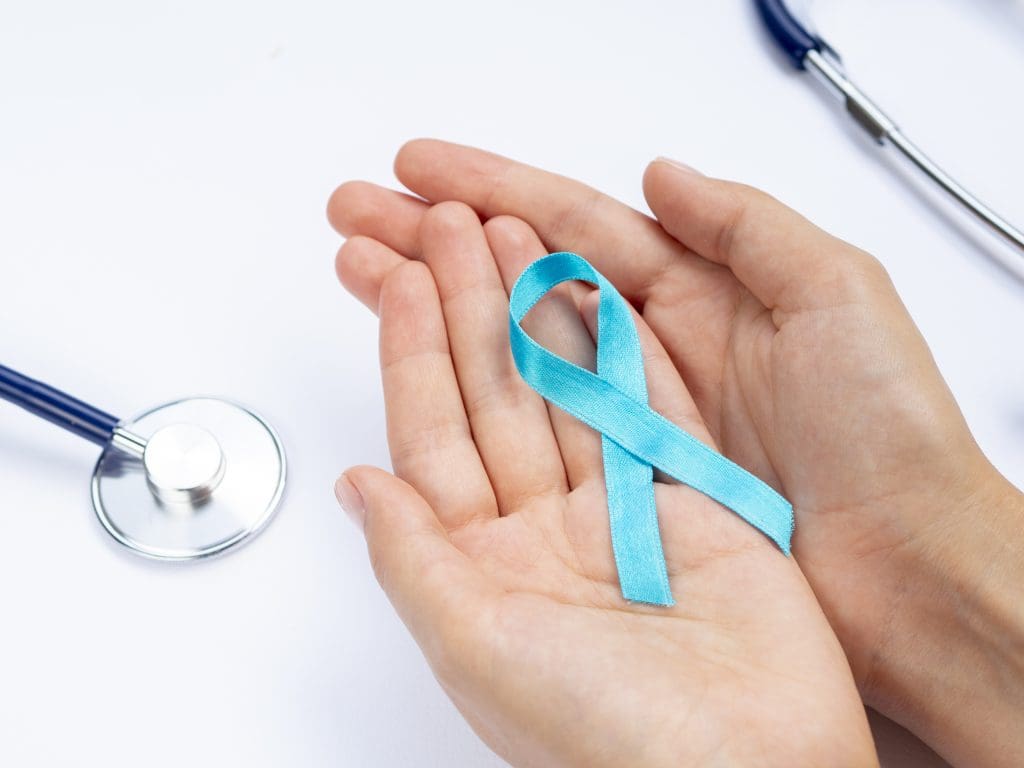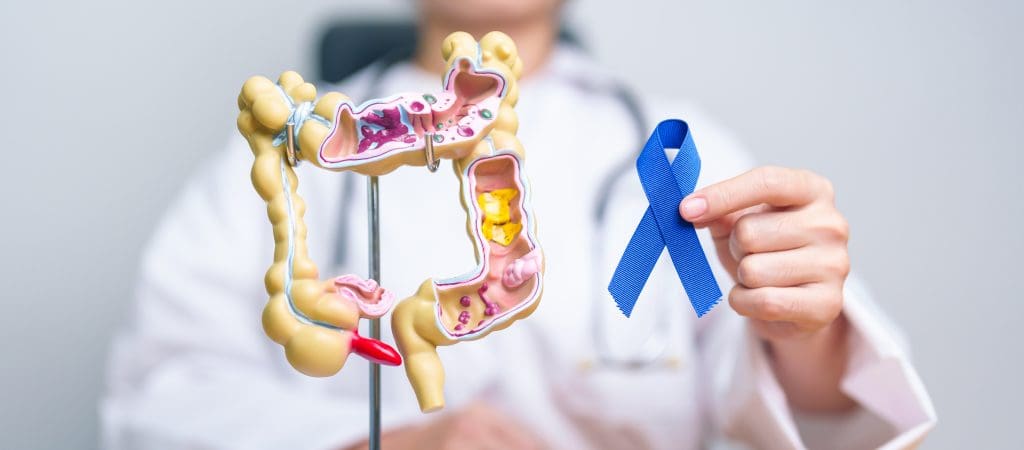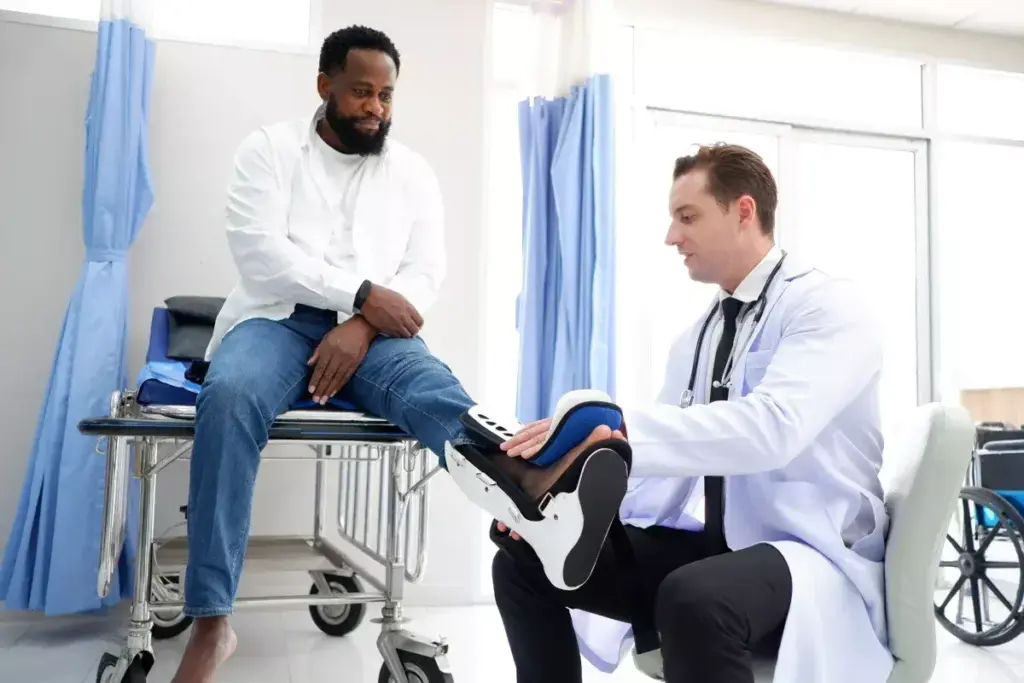
What is Stage 0 Colon Cancer? We often find out that early colon cancer can be caught early. It’s when cancer is only in the lining of the colon. This is called carcinoma in situ colon. It’s a sign that, if caught quickly, can stop cancer from getting worse.
Stage 0 colon cancer is easy to treat because the cancer is only in the top layer. Knowing about this early stage is key to managing and treating it well. We stress the need for early detection to help patients get better.
Key Takeaways
- Early detection of colon cancer significantly improves treatment outcomes.
- Carcinoma in situ colon is a condition where cancerous cells are confined to the lining.
- Stage 0 colon cancer is highly treatable with appropriate management.
Understanding Stage 0 Colon Cancer

Stage 0 colon cancer, also known as carcinoma in situ, is a condition where cancerous cells are confined to the lining of the colon. This early-stage cancer is highly treatable. Knowing about its definition and classification is key for effective management.
Definition and Classification
Stage 0 colon cancer is when cancer cells stay in the epithelial layer without crossing the basement membrane. This makes it non-invasive because the cancer cells haven’t spread deeper into the colon wall.
The TNM staging system classifies Stage 0 colon cancer as Tis, N0, M0. This means the cancer is in situ, with no lymph node involvement and no distant metastasis.
Carcinoma in Situ Explained
Carcinoma in situ, or Stage 0 colon cancer, is a precancerous lesion that could turn into invasive cancer if not treated. The term “carcinoma in situ” comes from Latin, meaning “cancer in its original place.”
Key characteristics of carcinoma in situ include:
- Cancer cells are confined to the epithelial layer.
- No invasion through the basement membrane.
- Highly treatable with appropriate interventions.
| Characteristics | Description |
| Cancer Location | Confined to the epithelial layer of the colon |
| Invasion Status | Non-invasive; not through the basement membrane |
| TNM Classification | Tis, N0, M0 |
| Treatability | Highly treatable |
The Anatomy of Colon Cancer Development
Colon cancer starts with normal tissue turning bad. It’s key to know how this happens to understand Stage 0 Colon Cancer.
Normal Colon Structure
The colon is a key part of our digestive system. It absorbs water and salts from food. It has layers: mucosa, submucosa, muscularis propria, and serosa. The mucosa layer is where cancer often starts.
From Polyps to Cancer
Polyps form in the mucosa layer first. Not all polyps turn into cancer, but some can. Adenomatous polyps can become cancerous if not taken out.
Genetic changes cause this. They mess with cell growth and division, leading to cancer.
| Polyp Type | Cancer Potencial | Characteristics |
| Adenomatous Polyps | High | Can progress to cancer if not removed |
| Hyperplastic Polyps | Low | Generally not considered precancerous |
| Serrated Polyps | Variable | Some types have higher cancer risk |
The Significance of the Mucosa Layer
The mucosa layer is key in colon cancer. It’s where polyps and early cancer, like Stage 0, are found. It’s important for absorbing water and salts.
Knowing about the mucosa helps us find and treat cancer early. Regular screening and removing polyps are important.
How Stage 0 Differs From Other Colon Cancer Stages
Knowing the differences between Stage 0 colon cancer and other stages is key for treatment planning. Colon cancer is staged based on how far it has spread. This staging helps doctors predict outcomes and decide on treatments.
To grasp Stage 0 colon cancer’s uniqueness, we must understand the TNM staging system. It’s a widely used method for classifying colon cancer.
The TNM Staging System
The TNM system is a detailed way to classify colon cancer. It looks at three main things: the tumor’s size and spread (T), nearby lymph nodes (N), and if the cancer has spread (M). This system helps doctors understand how far the cancer has grown.
- T (Tumor): Shows the tumor’s size and if it has invaded nearby tissue.
- N (Node): Tells if nearby lymph nodes are affected.
- M (Metastasis): Indicates if the cancer has spread to other parts of the body.
By combining these factors, the TNM system gives a clear picture of the cancer’s extent. This helps doctors accurately stage the disease.
Characteristics Unique to Stage 0
Stage 0 colon cancer, also known as carcinoma in situ, has abnormal cells only in the innermost lining of the colon or rectum. At this stage, the cancer hasn’t invaded deeper into the colon or rectum wall. It also hasn’t spread to lymph nodes or distant sites.
The unique traits of Stage 0 colon cancer include:
- The cancer is only in the mucosa, the innermost layer of the colon or rectum.
- It hasn’t invaded deeper layers or structures.
- There’s no lymph node involvement or distant metastasis.
These traits make Stage 0 colon cancer highly treatable, often with a good prognosis.
Exploring colon cancer staging shows the importance of understanding each stage’s specifics. The difference between Stage 0 and more advanced stages highlights the need for early detection and treatment.
Risk Factors for Developing Stage 0 Colon Cancer
Knowing the risk factors for Stage 0 colon cancer is key for early detection and prevention. Several factors can raise a person’s chance of getting colon cancer. Being aware of these can help in taking early steps.
Genetic Predispositions
Genetic predispositions are a big factor in colon cancer. Conditions like Familial Adenomatous Polyposis (FAP) and Lynch Syndrome greatly increase the risk. FAP causes hundreds to thousands of polyps in the colon and rectum, often starting in the teenage years.
If not treated, people with FAP face almost a 100% chance of colon cancer by age 40. Lynch Syndrome, also known as Hereditary Nonpolyposis Colorectal Cancer (HNPCC), raises the risk of colon cancer and other cancers like endometrial and ovarian cancer.
Lifestyle and Environmental Factors
Lifestyle and environmental factors also play a role in colon cancer risk. Eating a lot of red and processed meats, and not enough fruits and vegetables can increase risk. Being inactive, obese, and smoking also raise the risk of colon cancer.
Medical Conditions That Increase Risk
Certain medical conditions can also raise the risk of colon cancer. People with a history of inflammatory bowel disease (IBD), like ulcerative colitis and Crohn’s disease, are at higher risk. The risk grows with the length and severity of IBD.
| Risk Factor | Description | Impact on Risk |
| Familial Adenomatous Polyposis (FAP) | Genetic condition leading to multiple colon polyps | Nearly 100% risk of colon cancer by age 40 if untreated |
| Lynch Syndrome | Genetic condition increasing risk of colon and other cancers | Increased risk of colon cancer and other associated cancers |
| Diet High in Red/Processed Meats | Diet lacking in fiber, fruits, and vegetables | Increased risk due to dietary habits |
| Inflammatory Bowel Disease (IBD) | Conditions like ulcerative colitis and Crohn’s disease | Risk increases with duration and severity of IBD |
Knowing these risk factors is key for early detection and prevention of Stage 0 colon cancer. Screening and surveillance can be tailored based on an individual’s risk profile.
Signs and Symptoms of Stage 0 Colon Cancer
Stage 0 Colon Cancer often shows no symptoms or only mild ones. This makes it very important to get screened. Sometimes, not feeling sick or having mild symptoms can make people think they’re okay. But, it’s key to know the signs that might show this condition is present.
Common Presentations
Many people with Stage 0 Colon Cancer don’t notice any symptoms. But, some might feel a few things that could be related to the disease. These signs can include:
- Minor changes in bowel habits
- Occasional rectal bleeding
- Abdominal discomfort
These symptoms can also mean other things, making it hard to know if it’s Stage 0 Colon Cancer just by symptoms.
When Symptoms May Be Absent
A big thing about Stage 0 Colon Cancer is that it often doesn’t cause any symptoms. This shows why colon cancer screening is so important. It helps find the disease early, when it’s easier to treat.
Getting screened for colon cancer, even if you don’t feel sick, is key. It helps catch the disease early. Talk to your doctor about screening, if you have risk factors or a family history of colon cancer.
Knowing the signs and symptoms of Stage 0 Colon Cancer and the need for screening helps people stay healthy. It’s all about being proactive for your health.
Screening Methods That Detect Stage 0 Colon Cancer
Early detection of colon cancer, like Stage 0, greatly improves treatment chances. Screening methods are key in finding the disease early. This makes it easier to manage.
Colonoscopy: The Gold Standard
Colonoscopy is seen as the top choice for colon cancer screening. It uses a flexible tube with a camera to look inside the colon and rectum. During the test, doctors can find and remove polyps before they turn cancerous.
Colonoscopy detects Stage 0 colon cancer very well. This makes it a powerful tool in the fight against colon cancer.
A leading gastroenterologist says, “Colonoscopy is not just for finding problems; it’s also for preventing them. By taking out polyps, we stop colon cancer from starting.” This shows how important colonoscopy is in catching cancer early.
Other Screening Approaches
Though colonoscopy is the best, other methods are also used. These include:
- Fecal occult blood tests (FOBT) to find hidden blood in the stool.
- Sigmoidoscopy, a similar procedure but only for the lower colon.
- CT colonography, or virtual colonoscopy, which uses imaging to see the colon.
- Stool DNA tests, which look for genetic material from cancer cells in the stool.
Each method has its own benefits and fits different patient needs.
Recommended Screening Guidelines
Guidelines say adults with average risk should start screening at 45. Those with family history or other risks might start earlier. How often to screen depends on the method and individual risk.
| Screening Method | Frequency | Age to Start |
| Colonoscopy | Every 10 years | 45 |
| FOBT | Annually | 45 |
| Sigmoidoscopy | Every 5 years | 45 |
| CT Colonography | Every 5 years | 45 |
| Stool DNA Tests | Every 3 years | 45 |
Following these colon cancer screening stage0 guidelines can greatly help those at risk of colon cancer.
“The key to managing colon cancer is early detection. By following recommended screening guidelines, we can identify and treat the disease at its earliest stages, improving survival rates and quality of life.”
” American Cancer Society
Diagnostic Procedures for Confirming Stage 0 Colon Cancer
Confirming Stage 0 Colon Cancer requires several tests. We use a mix of methods to make sure the diagnosis is right. This is key for choosing the right treatment. The steps include biopsies, looking at tissue samples, and using advanced imaging.
Biopsy Techniques
Biopsies are key in diagnosing Stage 0 Colon Cancer. During a colonoscopy, a small tissue sample is taken from the colon lining. This sample is then checked under a microscope for any abnormal cell changes.
- Forceps biopsy: Uses forceps to pinch off a tissue sample.
- Snare biopsy: Employs a snare to remove larger polyps or tissue samples.
Pathological Examination
Looking at the biopsy sample is vital for confirming Stage 0 Colon Cancer. A pathologist examines the sample for cancer cells or abnormal cell changes.
The report from the pathologist will show if there are cancer cells or other issues. This helps decide on the next steps in treatment.
Advanced Imaging Methods
CT scans or MRI might be used to see how far the disease has spread. But they’re not the main way to diagnose Stage 0 Colon Cancer.
These scans help make sure the cancer isn’t more advanced. They also help plan the treatment.
Comprehensive Treatment Options for Stage 0 Colon Cancer
Managing Stage 0 colon cancer requires different treatments. At this stage, the cancer is only in the innermost lining of the colon. It hasn’t spread deeper, making it very treatable.
Polypectomy During Colonoscopy
Polypectomy during colonoscopy is a common treatment. It removes the cancerous polyp during a colonoscopy. This method is minimally invasive and can diagnose and treat in one go. The removed polyp is checked for cancer cells. If all cancer is removed, no more treatment is needed.
Local Excision Procedures
Local excision procedures are sometimes recommended. They remove the cancerous area and a bit of healthy tissue around it. This method is used for small, early-stage cancers. It’s less invasive than surgery and can be done as an outpatient.
When Colectomy May Be Necessary
Even though Stage 0 colon cancer is treatable, sometimes a bigger surgery like colectomy is needed. This choice depends on the cancer’s size, location, or if it has spread deeper. A colectomy removes the colon part with the cancer and nearby lymph nodes. It’s more invasive but can cure the cancer.
Emerging Treatment Approaches
New treatments for Stage 0 colon cancer are being researched. These include advanced endoscopic techniques, immunotherapy, and other minimally invasive methods. These options are promising for the future.
Every patient’s case is different, and treatments are customized. The choice of treatment depends on many factors. These include the patient’s health, the cancer’s size and location, and personal preferences.
Recovery and Follow-up After Treatment
Recovery and follow-up care are key for Stage 0 Colon Cancer patients. After treatment, patients need to watch for signs of cancer coming back. They also need to handle any side effects.
Post-Procedure Care
Post-procedure care helps patients recover well and fast. Important parts of post-procedure care include:
- Watching for any immediate complications or side effects
- Managing pain and discomfort
- Following dietary recommendations to aid in recovery
- Attending follow-up appointments as scheduled by healthcare providers
It’s very important to follow the care instructions given by healthcare professionals. This helps avoid complications and speeds up recovery.
Surveillance Recommendations
Surveillance after treatment for Stage 0 Colon Cancer is key to catch any recurrence early. Surveillance recommendations typically include:
- Regular colonoscopies at intervals determined by the healthcare provider
- Other diagnostic tests as recommended based on individual patient risk factors
- Lifestyle modifications to reduce the risk of recurrence
We suggest patients work with their healthcare team to create a surveillance plan. This plan should consider the patient’s health, cancer specifics, and other factors.
By sticking to these guidelines and talking openly with healthcare providers, patients can greatly improve their outcomes. This also helps lower the chance of recurrence.
Prognosis and Survival Rates for Stage 0 Colon Cancer
The outlook for Stage 0 Colon Cancer is very good. This is because it’s caught early and is only in one place. When treated right, most people can live a long life.
Statistical Outcomes
Studies show that Stage 0 Colon Cancer survival rates are very high. The 5-year survival rate for this stage is about 90% or more. This is because the cancer is only in the innermost layer of the colon.
Here’s a table showing survival rates:
| Stage | 5-Year Survival Rate |
| Stage 0 | Approximately 90-100% |
| Localized Colon Cancer | Approximately 90% |
Factors Affecting Prognosis
Several things can change how well someone does with Stage 0 Colon Cancer. These include:
- The overall health of the patient
- The presence of any other medical conditions
- The effectiveness of the treatment plan
- Patient compliance with post-treatment surveillance recommendations
Doctors say, “Early detection is key to successful treatment and a favorable prognosis.” This underlines the importance of regular screenings.
Long-term Outlook
The long-term outlook for Stage 0 Colon Cancer patients is very good. Most people can be cured with the right treatment. But, it’s important to keep up with follow-up checks.
Surveillance Recommendations include regular colonoscopies, starting 1 year after treatment. This helps catch any cancer that might come back and removes new polyps.
As shown in the image below, early detection through screening methods like colonoscopy significantly improves outcomes.
In conclusion, the outlook for Stage 0 Colon Cancer is very positive. With high survival rates and a good long-term outlook, it’s important to keep up with follow-ups and live a healthy lifestyle to prevent cancer from coming back.
The Relationship Between Colon Polyps and Stage 0 Cancer
Colon polyps and Stage 0 colon cancer are closely linked. Early detection and removal of polyps are key. These growths on the colon or rectum are common in adults. While most are harmless, some can turn into cancer over time.
Types of Polyps That May Become Cancerous
Not all colon polyps are the same. Some are more likely to become cancerous. The most common types include:
- Adenomatous polyps (also known as adenomas), which are considered precancerous.
- Serrated polyps, some of which can be precancerous, if they are large or have an irregular shape.
These polyps can turn into cancer through genetic mutations. This leads to uncontrolled cell growth.
Polyp Removal as Prevention
Removing colon polyps during a colonoscopy can stop cancer from developing. This procedure is both a diagnosis and treatment. By removing polyps before they turn malignant, we can greatly lower cancer risk.
Polypectomy, the removal of a polyp, is a common practice during colonoscopy. For bigger or more complex polyps, endoscopic mucosal resection (EMR) is used.
Our data shows that removing colon polyps during colonoscopy can prevent cancer. This underlines the need for regular screening and follow-up.
Preventing Recurrence After Stage 0 Treatment
Preventing colon cancer from coming back is key for Stage 0 patients after treatment. The goal is to keep the cancer from returning. This means making lifestyle changes and staying under close watch.
Lifestyle Modifications
Changing your lifestyle can lower the chance of colon cancer coming back. Here are some ways to do it:
- Dietary Changes: Eat more fruits, veggies, and whole grains. Cut down on processed and red meats.
- Regular Exercise: Stay active to keep a healthy weight and boost your health.
- Avoiding Tobacco: Quit smoking and stay away from tobacco to lower cancer risk.
- Limiting Alcohol: Drink less alcohol to avoid its harmful effects.
These changes help prevent cancer from coming back and improve your overall health.
Ongoing Monitoring Strategies
Keeping an eye on your health is vital to catch any cancer signs early. Here’s how:
| Monitoring Method | Frequency | Purpose |
| Colonoscopy | Every 3-5 years | To find polyps or cancerous changes in the colon |
| CT Scans | As recommended by the doctor | To look for any cancer signs |
| Blood Tests | Regularly | To check for tumor markers that may show cancer is back |
By making lifestyle changes and staying under watch, you can greatly lower the risk of colon cancer coming back. This ensures you stay healthy for a long time.
Emotional and Psychological Aspects of a Stage 0 Diagnosis
Getting a Stage 0 colon cancer diagnosis is more than just a medical event. It’s a journey filled with emotions that need support and understanding. People react differently, feeling shocked, denying it, or getting anxious and scared.
It’s important to understand the emotional side of a cancer diagnosis. This is true for patients, their families, and doctors. The emotional and mental challenges of a Stage 0 colon cancer diagnosis are as tough as the physical ones.
Coping with the Cancer Label
Dealing with a cancer diagnosis is not just about treating the disease. It’s also about facing the emotional and mental effects. Patients might feel shocked, anxious, or scared about treatment and the chance of the cancer coming back.
Support from loved ones, support groups, and mental health experts is key. Mindfulness, meditation, and cognitive-behavioral therapy can help manage stress and anxiety.
“The emotional impact of a cancer diagnosis can be profound. Support and understanding are key to helping patients cope with the journey ahead.”
Oncologist
Support Resources Available
There are many support resources for Stage 0 colon cancer patients. These include:
- Support groups, either in-person or online, where patients can share their experiences and connect with others going through similar challenges.
- Mental health services, including counseling and therapy, to help manage the emotional aspects of the diagnosis.
- Educational resources and workshops that provide information on coping strategies, treatment options, and survivorship.
| Support Resource | Description | Benefits |
| Support Groups | In-person or online groups for sharing experiences | Emotional support, community building |
| Mental Health Services | Counseling and therapy for emotional management | Stress reduction, coping strategies |
| Educational Resources | Workshops and materials on treatment and survivorship | Knowledge empowerment, informed decision-making |
Early detection and treatment of colon cancer improve survival rates and quality of life. By tackling the emotional and mental sides of a Stage 0 diagnosis, patients can better handle their condition and the healthcare system.
Conclusion
Early detection and treatment of Stage 0 Colon Cancer are key to a cure. We’ve looked at what it is, who’s at risk, and its signs. We’ve also covered how to screen and diagnose it.
Knowing about stage0 colon cancer helps people take care of their health. Finding and treating it early is vital to stop it from getting worse.
Early detection is very important for stage0 colon cancer. It makes a big difference in treatment success. By following screening guidelines, people can lower their risk of getting colon cancer.
We stress the need for a proactive health approach. Using the latest medical science can lead to better outcomes for stage0 colon cancer patients.
FAQ
What is Stage 0 Colon Cancer?
Stage 0 Colon Cancer, also known as carcinoma in situ, is a condition where cancerous cells are found only in the lining of the colon. It has not invaded deeper tissues, making it a highly treatable condition.
What does carcinoma in situ mean?
Carcinoma in situ is a condition where cancer cells are confined to the epithelial layer. They have not invaded deeper tissues, making it a highly treatable condition.
How does Stage 0 Colon Cancer differ from other stages?
Stage 0 Colon Cancer is distinct from other stages. It is confined to the mucosa layer and has not invaded deeper tissues. This makes it a highly treatable condition.
What are the risk factors for developing Stage 0 Colon Cancer?
Risk factors for developing Stage 0 Colon Cancer include genetic predispositions, lifestyle and environmental factors, and certain medical conditions.
What are the signs and symptoms of Stage 0 Colon Cancer?
Stage 0 Colon Cancer may present with no symptoms. It may also cause common symptoms such as changes in bowel habits or rectal bleeding.
How is Stage 0 Colon Cancer detected?
Stage 0 Colon Cancer is typically detected through screening methods. Colonoscopy is considered the gold standard for detecting colon cancer.
What are the treatment options for Stage 0 Colon Cancer?
Treatment options for Stage 0 Colon Cancer include polypectomy during colonoscopy, local excision procedures, and in some cases, colectomy.
What is the prognosis for Stage 0 Colon Cancer?
The prognosis for Stage 0 Colon Cancer is generally excellent. High survival rates are due to its highly treatable nature.
How can recurrence be prevented after treatment for Stage 0 Colon Cancer?
Preventing recurrence after treatment for Stage 0 Colon Cancer involves lifestyle modifications and ongoing monitoring strategies.
What is the relationship between colon polyps and Stage 0 Cancer?
Colon polyps, such as adenomatous polyps, can develop into cancer over time. Removing them during colonoscopy can prevent colon cancer.
How often should I undergo screening for colon cancer?
Screening guidelines recommend regular colonoscopy starting at age 45 for individuals with average risk. Those with risk factors should undergo screening more frequently.
What are the emotional and psychological aspects of being diagnosed with Stage 0 Colon Cancer?
Being diagnosed with Stage 0 Colon Cancer can be emotionally challenging. But support resources are available to help cope with the diagnosis.
What is the role of colectomy in treating Stage 0 Colon Cancer?
Colectomy may be necessary in some cases of Stage 0 Colon Cancer. This is true if the cancer is large or cannot be removed through polypectomy or local excision.
Can Stage 0 Colon Cancer be cured?
Yes, Stage 0 Colon Cancer is highly treatable and often curable. Appropriate treatment, such as polypectomy or local excision, is key.










